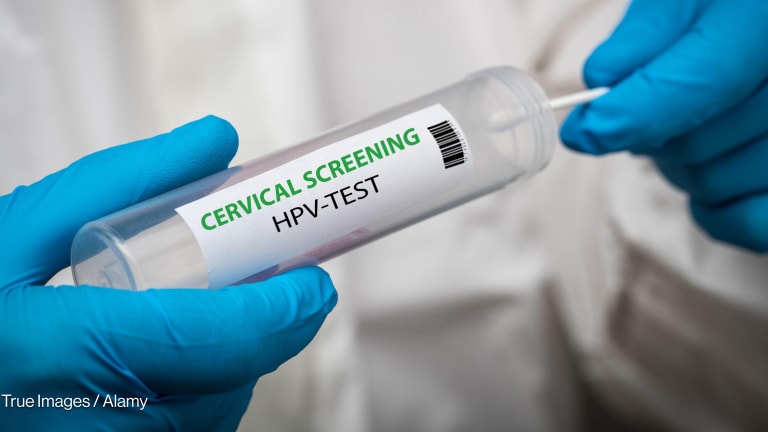
Cervical cancer has for too long been a blind spot in the international health landscape, where gender inequality has been particularly unforgiving.
The disease strikes hardest at poor and marginalized communities. Nine out of every 10 of the 311,000 women who died from cervical cancer in 2018 were in low- and middle-income countries, according to the World Health Organization.
It is screening and treatment that will save lives in the immediate term.
—The rising death toll from the disease contrasts with falling maternal mortality rates and rising numbers of people living with HIV who lead normal lives, thanks to the scaling up of treatment across the globe. Governments recognize that health gains are being undermined as a growing number of women are now at increased risk of dying of cervical cancer.
Caused by infection with human papillomavirus, or HPV, cervical cancer is one of the most preventable and curable forms of cancer. Yet it remains the fourth most common cancer among women globally and the leading cause of the disease among women in 42 countries, many of them in sub-Saharan Africa. Too many women who are diagnosed with cervical cancer die because the disease is identified too late to prevent further progression.
This situation is unacceptable and we need to act now to build a better future for millions of women.
Turning the tide against discrimination and taboos
For many in Nigeria, cancer care remains out of reach
A $250 million National Cancer Control Plan is increasing treatment facilities nationwide — but most people still cannot afford to use them.
If we don’t act now, deaths from cervical cancer will increase a further 50% by 2040, and many women, their families, and communities will be impacted, WHO has warned.
Working with governments, civil society, international organizations, and communities, we must bring the necessary tools to LMICs in order to prevent and treat cervical cancer.
It is extraordinary that so many women die from a disease for which effective prevention tools already exist. To see this disease eliminated we need a high degree of political and social commitment to fight gender discrimination and stigma. Too often women endure neglect and exclusion.
While vaccination will drive the impact in decades to come, as vaccinated girls grow up and reach the stage in life when cervical cancer starts to present, it is screening and treatment that will save lives in the immediate term. Such a combination could prevent 4.5 million deaths by 2050 and 39 million deaths by 2100 and put an end to this scourge, modeling by WHO shows.
Innovation essential to eliminate cervical cancer
Today, critical barriers prevent young girls and women from accessing services, and we need a series of game-changing innovations to cut through the obstacles.
Now that we have secured political support from governments, ensuring affordable HPV testing and treatment for all countries is vital for success.
Women in LMICs have no time to lose.
Screening and treatment services need to be widely established and scaled up. Communities have a key role to play in raising awareness among underserved women of the facts of cervical cancer and in encouraging them to get screened.
We hail the support by governments around the world for a plan to eliminate cervical cancer within a generation. The plan, endorsed in February 2020 by the executive board of WHO, calls for a combination of intensive vaccination, and screening and treatment to be scaled up in all countries, putting them on a path to eliminating cervical cancer. With this commitment, the international community has given women everywhere the reassurance they need that this pernicious disease will one day be consigned to history.
The Union for International Cancer Control, a powerful global membership organization for reducing the global burden of cancer, and Unitaid, an engine of health innovation, are joining forces to strongly endorse WHO’s inspiring targets and to help secure their achievement.
Our two organizations are working closely with our partners in West Africa, Latin America, and Southeast Asia to pilot technical and policy innovations that are expected to catalyze cervical cancer prevention and control. These projects should pave the way to accelerate progress in the fight against cervical cancer.
We have come a long way. Only a few years ago it was unimaginable that countries would be working to eliminate cervical cancer. We now have a roadmap that can bring about the end of a disease that takes a terrible toll on women in their prime. We cannot let future generations down.









